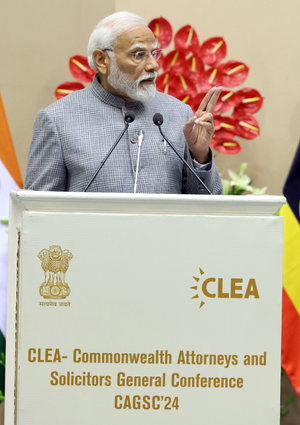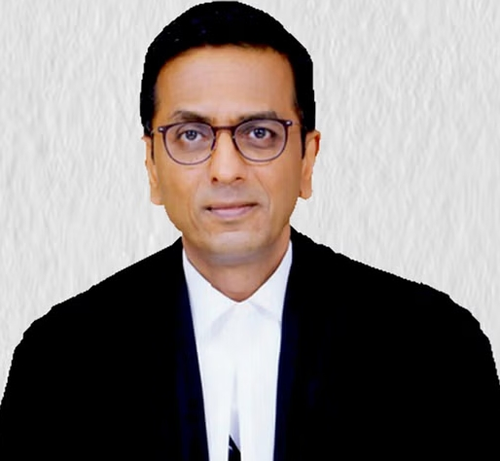India
Shah: Assam floods will be things of the past

On Saturday, Union Home Minister Amit Shah said the government is working hard to make natural disasters like the ones that plague Assam annually a thing of the past, but that it will take five years to properly fix the problem.
After opening the BJP’s new state office here, Shah addressed a meeting of party members and stated that a “ambitious” initiative to reduce the risk of flooding is now being developed.
I quote from the BJP manifesto: “We had pledged an Assam free of terrorism, corruption, and flood. The first two objectives have been completed successfully. He said, “Give us five more years, and we’ll make Assam flood-free.”
At least three or four flood waves hit Assam every year. A state government website estimates that the calamity costs the state an average of Rs 200 crore per year.
On Friday night, Shah said he had met with several people involved to address the issue at length, and now “an ambitious initiative” is being developed under the supervision of the North Eastern Council (NEC).
The deluge will be a thing of the past in five years. He continued, “Prime Minister Narendra Modi is committed to making Assam a flood-free state.
The Union Home Minister further said that the party is committed to bolstering internal security to the point where legislation like the Armed Forces (Special Powers) Act, 1958 (AFSPA) are unnecessary; its application has already been revoked in roughly 80% of the Northeastern region.
The Armed Forces Self-Defense Act (AFSPA) serves to shield the armed forces and other security personnel. If Rahul Gandhi’s party forms the next government, he has promised to repeal AFSPA. The security forces, as I have previously argued, do need to be bolstered,” he continued.
In an apparent jab at the Congress’s current “Bharat Jodo Yatra,” Shah remarked that the grand old party had forgotten about the Northeast since former Prime Minister Jawaharlal Nehru had left Assam during the 1962 India-China war.
This area is three times as large as UP, and it has a long history of separatist and insurgent activity. The Congress stood by and did little when efforts were made to break NE. Modi alone was responsible for bringing the NE together.
India
Without justice existence of any nation is not possible: PM Modi

New Delhi, Feb 3 (IANS) Prime Minister Narendra Modi on Saturday said that without justice the existence of any nation is not possible.
“Justice is at the root of independent self-governance and without justice even the existence of any nation is not possible,” Modi said while during the inauguration of the Commonwealth Legal Education Association (CLEA) – Commonwealth Attorneys and Solicitors General Conference (CASGC) in New Delhi.
He said when a society collaborates that it is easy to understand each other’s system better.
“Greater understanding brings greater synergy; synergy boosts better and faster justice delivery,” he said.
The theme of the conference was ‘Cross-Border Challenges in Justice Delivery’. The conference will deliberate on important issues pertaining to law and justice like judicial transition and the ethical dimensions of legal practice; executive accountability; and revisiting modern-day legal education, among others.
Throwing light on the radical changes in the nature and scope of crime in recent times, PM Modi pointed out the vast networks created by criminals across countries and their usage of the latest technology both in funding and operations.
He also drew attention to the fact that economic crimes in one region are being used to fund activities in other regions, and the challenges of the rise of cryptocurrency and cyber threats.
He also highlighted that reform cannot take place without making the justice system more citizen-centric as ease of justice is the pillar of justice delivery.
On Lok Adalats or ‘people’s court’, he said that it provides a settlement mechanism for small cases related to public utility services and is a pre litigation service where thousands of cases are resolved while ensuring ease of justice delivery.
Giving insights into realising the potential of women in every domain, PM Modi suggested making each domain inclusive at the educational level.
He said that an increase in the number of women in law schools will lead to an increase in the number of women in the legal profession.
He also suggested exchanging ideas on how more women can be brought into legal education.
PM Modi pointed out that India’s legal system was inherited from colonial times, but the last few years have witnessed a record number of reforms.
He mentioned the abolition of thousands of obsolete laws from colonial times, some of which had the potential to become tools to harass people, and underlined that it has boosted ease of living and ease of doing business.
“India is also modernising laws to reflect the present realities,” Modi said, highlighting that the three new legislations have replaced more than 100-year-old colonial criminal laws.
“Earlier, the focus was on punishment and penal aspects. Now, the focus is on ensuring justice. Therefore, citizens have a sense of assurance rather than fear,” he said.
India
Tasking Ahmed requests BCB to not consider him for Test cricket: Report

New Delhi, Feb 3 (IANS) Bangladesh pacer Taskin Ahmed has requested the Bangladesh Cricket Board (BCB) to not consider him for Test cricket as he is battling a lingering shoulder injury, and desires to focus solely on white-ball cricket, according to a report.
Cricbuzz reported that Taskin has written a letter to the Bangladesh Cricket Board (BCB), pleading for consideration in limited-overs formats to aid his recovery. BCB officials confirmed the development to Cricbuzz but emphasized the need for a comprehensive discussion after the ongoing Bangladesh Premier League (BPL) season.
“He (Taskin) had sent a letter stating that he does not want to play longer-version cricket. After the game (of the ongoing BPL) is over, we will sit with him in this regard,” said Jalal Yunus, BCB’s cricket operation chairman to Cricbuzz.
The decision awaits the input of head coach Chandika Hathurusingha, who has been informed about Taskin’s intentions.
Taskin’s shoulder injury, sustained during the World Cup 2023 match against India, has been a persistent hurdle in his career. Following the tournament, Taskin was sent to a rehabilitation program to regain full fitness and start competitive cricket again. As a result, he missed the two-match Test series at home against New Zealand and the white-ball return tour that followed soon after.
The dilemma extends beyond the pitch, as Taskin faces the prospect of surgery and a prolonged absence from the game. The BCB’s cautious approach, evident in denying Taskin a NOC for the Indian Premier League (IPL), showcases their concerns about the injury-prone fast bowler.
Interestingly, Mustafizur Rahman, another prominent pacer from Bangladesh too opted out of red-ball cricket to focus on white-ball formats.
While BCB granted NOC to Mustafizur for the IPL, the decision remains contentious for Taskin and Shoriful Islam, both representing the country in Test cricket.
India
Now, drones to monitor illegal mining activities in Gurugram, Nuh

Gurugram, Feb 3 (IANS) The mining department will soon start using drones to keep tabs on illegal mining in Gurugram and Nuh districts.
Recently, the district administration of Gurugram and Nuh have received complaints regarding illegal mining in Rithoj village in Gurugram and Nuh after which the department has decided to use drones to keep an eye on illegal mining.
Anil Atwal, the Mining Officer of Gurugram, who also has additional charge of Nuh distinct said, the department has sent a recommendation of three drones — one for Gurugram district and two for Nuh district — to Gurugram Metropolitan Development of Authority (GMDA) to keep an eye on illegal mining in both the districts.
“Once drones would be procured on time and made available to the mining department, the team will every week conduct survey wherever illegal mining is suspected,” he said.
The officer further said with the help of drones, it will be easy for the officials to access the situations of illegal mining and will also keep an eye on people and vehicles involved in illegal mining.
“With the help of drones, it will be easy for us to keep a watch on large areas of suspected mining locations. If we receive any complaint regarding illegal mining, the team will visit the spot and fly the drones to access the current situation of the spot,” he said.
Atwal also informed that from April 2023 to January 2024, around 46 vehicles, involved in illegal mining, have been seized in Gurugram while 147 vehicles were seized in Nuh district and a fine has been imposed on them.
India
CJI Chandrachud bats for equitable access to legal education

New Delhi, Feb 3 (IANS) Batting for equitable access to legal education, Chief Justice of India (CJI) D.Y. Chandrachud on Saturday said that admissions processes to law schools should not only consider academic performance but also factors such as socioeconomic background, diversity, and life experiences.
Delivering an inaugural address at 2024 Commonwealth Attorneys and Solicitors General Conference (CASGC), CJI Chandrachud said that as we strive to modernise legal education, we must also confront the question of equitable access to legal education.
“Entrance tests for admission to law schools must not be exclusionary. We must ensure that our admissions processes are fair, transparent, and inclusive,” he said.
Speaking further, CJI Chandrahcud said that law officers serve as the primary point of contact between the courts and the government and they not only function as representatives of the government but also as officers of the court.
“Law officers bear a greater responsibility in upholding ethical standards compared to private practitioners, given their role as guardians of the rule of law. …It is imperative that law officers remain impervious to the politics of the day and conduct themselves with dignity in court, ensuring the integrity of legal proceedings,” he said.
The Supreme Court has repeatedly emphasised that law officers and professionals should not only assist the administration of justice but also uphold the honour of the legal profession through exemplary conduct from both within and outside the courtroom, he added.
Citing eCourts Project which aims to leverage technology to improve access to justice for all citizens, CJI Chandrachud said that technology should bring about a transformation, not just automation.
“We must ensure that technological solutions are designed keeping in mind equity and inclusivity, taking into account the diverse needs and capabilities of all our stakeholders,” he said.
Chief Justice Chandrachud said that the Sustainable Development Goals — calling for action to end poverty, protect the planet, and ensure prosperity for all — resonate deeply with our core constitutional principles of justice, equality, and human rights and these goals are not specific to just India but are intrinsic part of all legal systems.
Prime Minister Narendra Modi on Saturday inaugurated the Commonwealth Legal Education Association (CLEA) – Commonwealth Attorneys and Solicitors General Conference (CASGC) 2024 at Vigyan Bhawan.
The Conference will see participation of Attorney Generals and Solicitors from the Commonwealth nations spanning the Asia-Pacific, Africa, and the Caribbean along with various international delegations.
The conference themed ‘Cross-Border Challenges in Justice Delivery’ will deliberate on important issues pertaining to law and justice like judicial transition and the ethical dimensions of legal practice; executive accountability; and revisiting modern-day legal education, among others.
India
Law Commission recommends amendments in Prevention of Damage to Public Property Act

New Delhi, Feb 3 (IANS) The 22nd Law Commission, chaired by Justice Ritu Raj Awasthi (retd), has recommended amendments in the Prevention of Damage to Public Property Act saying that the law passed in 1984 seems to have failed in its stated objective of preventing the destruction of public property.
The panel said that destruction of public property has continued undiminished and the scale of destruction has only increased over the years causing gargantuan losses to the public exchequer and inconvenience to the general public.
It said that the Commission suo moto undertook to prepare its 284th report and did an extensive study of the subject after analysing various relevant constitutional and statutory provisions, numerous judicial pronouncements by the courts across the country, and the incidents involving large scale destruction of public property.
Parliament in 1948 enacted the ‘Prevention of Damage to Public Property Act’ criminalizing the acts of vandalism directed at public property.
In 2009, the Supreme Court took suo moto cognizance of destruction of public property and issued certain guidelines based on two reports submitted by Justice K. T. Thomas-led committee and Fali S. Nariman-led committee.
The Commission said that the courts in India have been at the forefront in recognizing the right to protest as a facet of the right to freedom of speech and expression and at the same time, cautioned that such right needs to be exercised with restraint and at all times, peacefully.
In its report, the law panel also recommended introducing a separate law or amending Bharatiya Nyaya Sanhita or the Indian Penal Code to tackle the issue of prolonged willful obstruction of public property.
-
Video2 years ago
PM Modi Attacks Congress in Karnataka with “Kerala Story”
-
Politics2 years ago
Siddaramaiah & DK Shivakumar sworn in as Chief Minister & Deputy CM respectively
-
Cricket2 years ago
CSK players rejoice 5th IPL title with their families (Pics)
-
Entertainment2 years ago
Karan Deol weds his longtime Girlfriend Drisha Acharya (Pics)
-
Entertainment2 years ago
Urvashi Rautela dazzles on Cannes 2023 red carpet (Pics)
-
Sports7 years ago
History Of Official FIFA WORLD CUP Match balls
-
Entertainment2 years ago
Sunny Leone gets ready for Kennedy premiere in Cannes (Pics)
-
India2 years ago
Ashwini Vaishnaw: Railway Board recommends CBI probe in the Odisha railway disaster


























